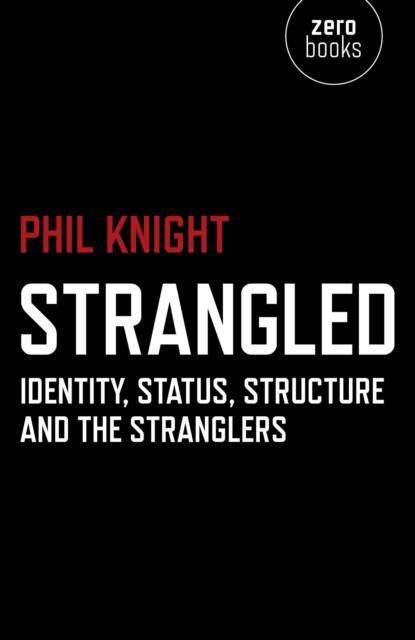
- Afhalen na 1 uur in een winkel met voorraad
- Gratis thuislevering in België vanaf € 30
- Ruim aanbod met 7 miljoen producten
- Afhalen na 1 uur in een winkel met voorraad
- Gratis thuislevering in België vanaf € 30
- Ruim aanbod met 7 miljoen producten
Zoeken
€ 17,95
+ 35 punten
Omschrijving
The Stranglers occupy a paradoxical position within the history of popular music. Although major artists within the punk and new-wave movements, their contribution to those genres has been effectively quarantined by subsequent critical and historical analyses. They are somehow "outside" the realm of what responsible accounts of the period consider to be worthy of chronicling. Why is this so? Certainly The Stranglers' seedy and intimidating demeanor, and well-deserved reputation for misogyny and violence, offer a superficial explanation for their cultural excommunication. However, this landmark work suggests that the unsettling aura that permeated the group and their music had much more profound origins; ones that continue to have disturbing implications even today. The Stranglers, it argues, continue to be marginalised because, whether by accident or design, they brought to the fore the underlying issues of identity, status and structure that must by necessity be hidden from society's conscious awareness. For this, they would not be forgiven.
Specificaties
Betrokkenen
- Auteur(s):
- Uitgeverij:
Inhoud
- Aantal bladzijden:
- 180
- Taal:
- Engels
Eigenschappen
- Productcode (EAN):
- 9781782797975
- Verschijningsdatum:
- 30/01/2015
- Uitvoering:
- Paperback
- Formaat:
- Trade paperback (VS)
- Afmetingen:
- 137 mm x 211 mm
- Gewicht:
- 204 g

Alleen bij Standaard Boekhandel
+ 35 punten op je klantenkaart van Standaard Boekhandel
Beoordelingen
We publiceren alleen reviews die voldoen aan de voorwaarden voor reviews. Bekijk onze voorwaarden voor reviews.








